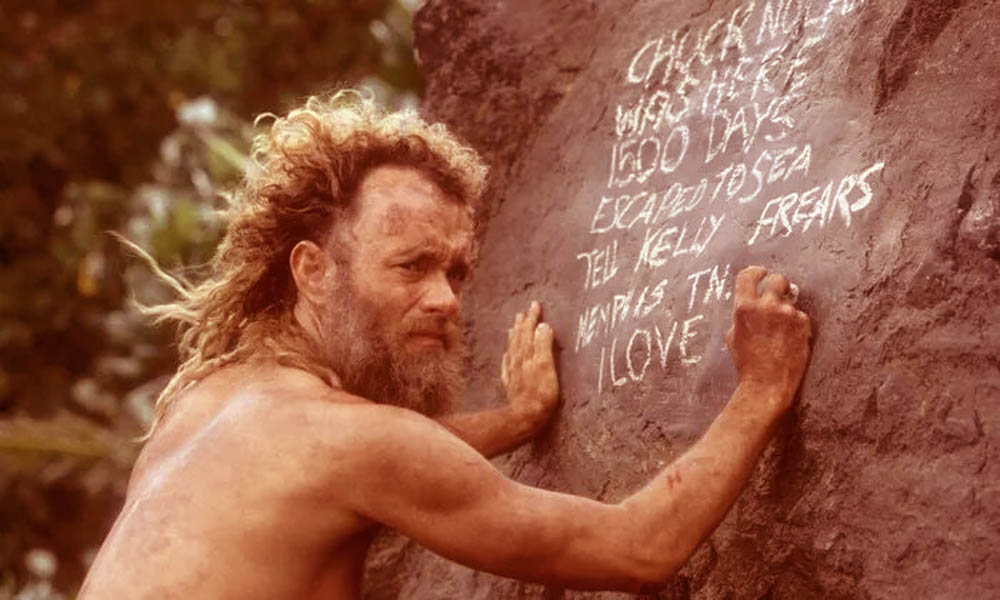Tom Hanks born on July 9, 1956, in Concord, California, Thomas Jeffrey Hanks emerged into a world that would soon be captivated by his extraordinary talent. His parents, Janet Marylyn and Amos Mefford Hanks, provided a stable and loving environment for their son. From a young age, Tom showed an affinity for performing, often entertaining his family with improvised skits and impressions.
Page Contents
Growing up in the diverse community of Oakland, Hanks developed a keen sense of observation and a natural ability to empathize with people from all walks of life. Little did he know that these early experiences would later contribute to the depth and authenticity of his portrayals on the big screen.
The Struggles
Despite his passion for acting, Hanks faced his fair share of challenges. After his parents divorced when he was just five years old, Tom moved with his father to Red Bluff, California. Adjusting to a new life and school presented difficulties, but it was during this period that he discovered his love for theater. Hanks found solace and purpose on the stage, a place where he could escape into different characters and transcend the challenges of his personal life.
Tom’s early pursuit of acting wasn’t without its setbacks. He attended California State University, Sacramento, but his commitment to acting led him to drop out in pursuit of his dreams. This decision wasn’t immediately rewarded, and he faced a period of financial struggles, working odd jobs to make ends meet. It was a challenging time that tested his resilience and determination.
Read Also : Leonardo DiCaprio: A Cinematic Odyssey
Breakthrough
In 1980, Tom Hanks received his first major break when he landed a role in the television series “Bosom Buddies.” The show, which aired from 1980 to 1982, showcased Hanks’ comedic talents and laid the foundation for his future success. Despite its short run, “Bosom Buddies” marked the beginning of Tom’s ascent in the entertainment industry.
However, it was his role in Ron Howard’s 1984 comedy “Splash” that truly propelled Hanks into the limelight. His portrayal of Allen Bauer, a man who falls in love with a mermaid, showcased his versatility and likability as an actor. The success of “Splash” marked the beginning of a string of box office hits for Tom Hanks, but it was only a glimpse of the cinematic legacy he would later build.

Critical Acclaim and Versatility
Throughout the late 1980s and early 1990s, Tom Hanks demonstrated his versatility as an actor by taking on a range of roles. From the hilarious Josh Baskin in “Big” (1988) to the earnest and determined lawyer Andrew Beckett in “Philadelphia” (1993), Hanks showcased his ability to inhabit characters with depth and authenticity.
The role of Andrew Beckett in “Philadelphia” was particularly significant as it earned Tom Hanks his first Academy Award for Best Actor. The film, which dealt with the sensitive subject of AIDS and discrimination, not only showcased Hanks’ acting prowess but also demonstrated his commitment to roles that carried important social messages.
Awards and Accolades
As the 1990s progressed, so did Tom Hanks’ reputation as one of Hollywood’s leading actors. In 1994, he delivered one of his most iconic performances as Forrest Gump in the film of the same name. The role not only solidified Hanks as a box office draw but also earned him his second consecutive Academy Award for Best Actor.
Hanks continued to receive critical acclaim for his roles in films such as “Apollo 13” (1995), “Saving Private Ryan” (1998), and “The Green Mile” (1999). His ability to convey a wide range of emotions and portray characters with depth garnered him the admiration of audiences and fellow industry professionals alike.
Behind the Scenes
Beyond his acting career, Tom Hanks ventured into the world of producing and directing. His production company, Playtone, was responsible for producing successful projects like the HBO miniseries “Band of Brothers” (2001) and “The Pacific” (2010). Hanks also directed and starred in films such as “That Thing You Do!” (1996) and “Larry Crowne” (2011), showcasing his multifaceted talents in the world of entertainment.
Family Man
While conquering Hollywood, Tom Hanks remained grounded in his personal life. In 1988, he married actress Rita Wilson, and the couple went on to build a strong and enduring partnership. The Hanks-Wilson union became one of Hollywood’s most enduring love stories, weathering the ups and downs of fame with grace and humor.
The couple also became parents to two sons, Chester and Truman. Hanks, despite his demanding career, prioritized his role as a father, often emphasizing the importance of family in interviews. His commitment to maintaining a balance between work and personal life became a testament to his values and contributed to his universally likable public image.
Challenges and Triumphs
The 2000s brought both challenges and triumphs for Tom Hanks. He continued to deliver memorable performances in films like “Cast Away” (2000) and “Catch Me If You Can” (2002). However, he faced a health scare in 2013 when he revealed that he had been diagnosed with type 2 diabetes. Always transparent about his experiences, Hanks used this challenge as an opportunity to raise awareness about the condition and encourage a healthy lifestyle.
Despite personal challenges, Hanks remained a force in the industry, earning critical acclaim for his performances in films such as “Captain Phillips” (2013) and “Bridge of Spies” (2015). His ability to convey the human experience with authenticity and empathy continued to resonate with audiences worldwide.

Cinematic Legacy
As of the early 2020s, Tom Hanks had firmly established himself as one of the most respected and beloved figures in the entertainment industry. With a career spanning several decades, he had amassed a collection of awards, including multiple Academy Awards, Golden Globes, and Emmys. Beyond the accolades, Hanks’ impact on cinema was evident in the timeless nature of his films.
His collaboration with director Steven Spielberg on projects like “Saving Private Ryan” and “Bridge of Spies” highlighted the depth and nuance he brought to historical characters. Meanwhile, his work in animated films, such as voicing Woody in the “Toy Story” franchise, endeared him to younger audiences and solidified his status as a versatile performer.
Philanthropy and Public Persona
Tom Hanks also became known for his philanthropic efforts. He supported various charitable organizations, including UNICEF, World Wildlife Fund, and the Elizabeth Glaser Pediatric AIDS Foundation. Hanks used his platform to advocate for social causes and became an ambassador for organizations dedicated to improving the lives of children and families around the world.
His public persona was characterized by humility, humor, and a down-to-earth attitude. In an industry often marked by excess, Hanks stood out as a genuine and approachable figure. Whether interacting with fans or addressing the media, he remained true to his roots and retained a sense of gratitude for the opportunities his career had afforded him.
Final Act
In 2020, as the world grappled with the challenges of the COVID-19 pandemic, Tom Hanks and his wife Rita Wilson made headlines when they contracted the virus while in Australia. The couple’s openness about their experience, coupled with Hanks’ reassuring presence, resonated with people worldwide. Their recovery became a symbol of hope during a tumultuous time.
As the world navigated uncertainties, Hanks continued to contribute to the industry. His portrayal of Fred Rogers in “A Beautiful Day in the Neighborhood” (2019) showcased his ability to embody real-life figures with sincerity and authenticity. The film not only celebrated the legacy of Mr. Rogers but also served as a reminder of Hanks’ enduring impact on the art of storytelling.
Read Also : Johnny Depp: A Tale of Eccentricity and Artistry
Legacy and Impact
As we reflect on Tom Hanks’ life and career, it becomes clear that he transcended the roles he played on screen. More than an actor, he became a cultural icon—a symbol of integrity, talent, and resilience. His body of work reflects a commitment to storytelling that resonates across generations and genres.
Tom Hanks’ journey from a young boy entertaining his family to a Hollywood legend is a testament to the power of passion, perseverance, and authenticity. In a world that often values the sensational, Hanks stood out for his genuine approach to both his craft and his personal life.
As we continue to enjoy his films and celebrate his contributions to the world of entertainment, Tom Hanks remains a beacon of inspiration—an ordinary man who achieved extraordinary success through talent, hard work, and an unwavering commitment to the art of storytelling.


